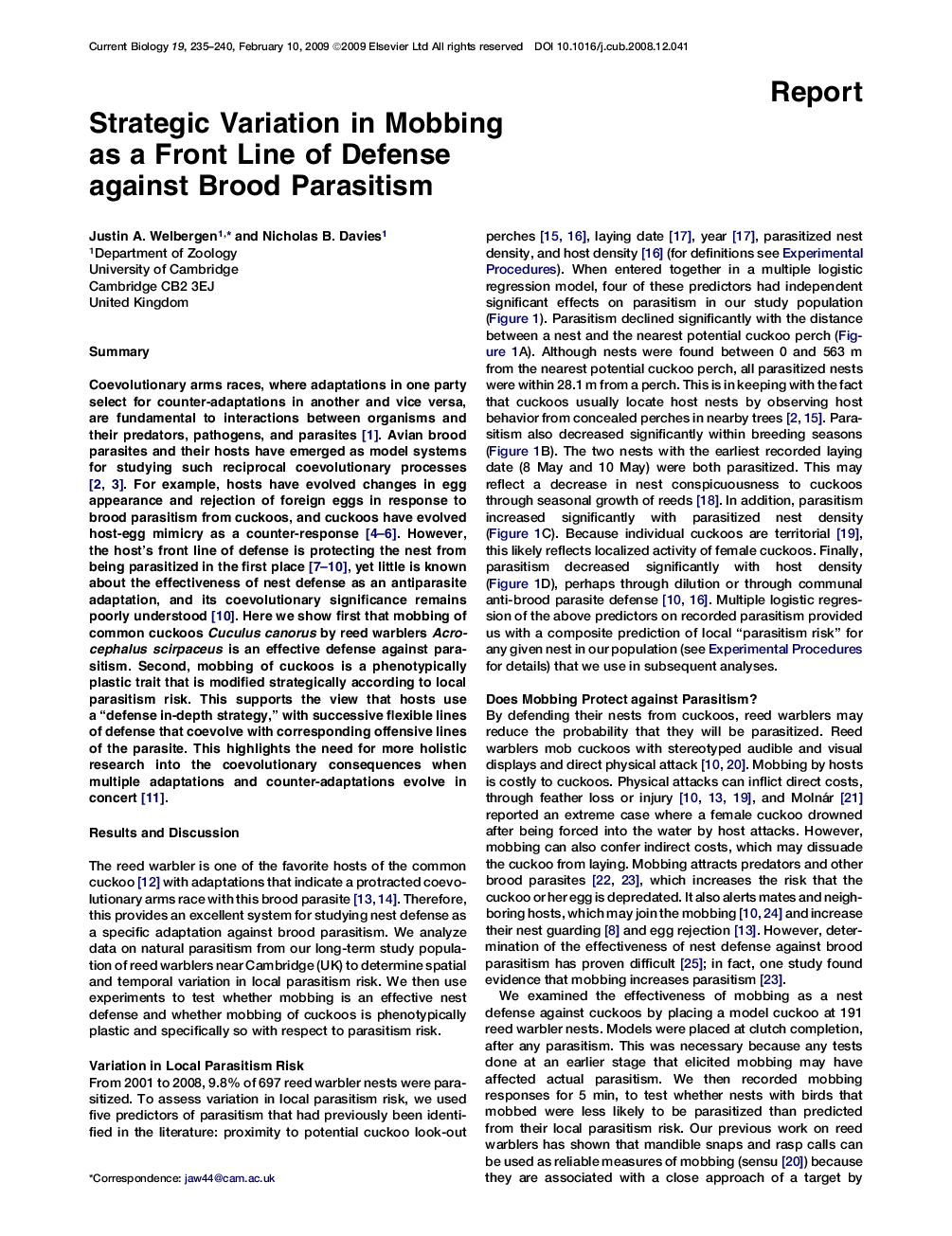| کد مقاله | کد نشریه | سال انتشار | مقاله انگلیسی | نسخه تمام متن |
|---|---|---|---|---|
| 2043587 | 1073366 | 2009 | 6 صفحه PDF | دانلود رایگان |

SummaryCoevolutionary arms races, where adaptations in one party select for counter-adaptations in another and vice versa, are fundamental to interactions between organisms and their predators, pathogens, and parasites [1]. Avian brood parasites and their hosts have emerged as model systems for studying such reciprocal coevolutionary processes 2 and 3. For example, hosts have evolved changes in egg appearance and rejection of foreign eggs in response to brood parasitism from cuckoos, and cuckoos have evolved host-egg mimicry as a counter-response 4, 5 and 6. However, the host's front line of defense is protecting the nest from being parasitized in the first place 7, 8, 9 and 10, yet little is known about the effectiveness of nest defense as an antiparasite adaptation, and its coevolutionary significance remains poorly understood [10]. Here we show first that mobbing of common cuckoos Cuculus canorus by reed warblers Acrocephalus scirpaceus is an effective defense against parasitism. Second, mobbing of cuckoos is a phenotypically plastic trait that is modified strategically according to local parasitism risk. This supports the view that hosts use a “defense in-depth strategy,” with successive flexible lines of defense that coevolve with corresponding offensive lines of the parasite. This highlights the need for more holistic research into the coevolutionary consequences when multiple adaptations and counter-adaptations evolve in concert [11].
Journal: - Volume 19, Issue 3, 10 February 2009, Pages 235–240